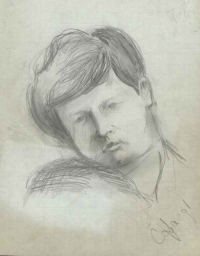| Pages in topic: < [1 2 3] | Off topic: Person's names and their meaning in another language Thread poster: Cristina Bufi Poecksteiner, M.A.
|
|---|
| Scott Bakula | Nov 19, 2009 |
In southern Montenegro, bakula means cockroach; and generally in BSC, skot (as it is pronounced) is an offensive term, "animal", or "beast" used to insult. Basically, his name would mean something like "bastard cockroach".
BTW, back in schooldays, kids had lots of laugh with my name when someone figured out that Aleksandar, read backwards, gives Radna Skela ((workers') scaffold).
| | | | mjbjosh
Local time: 11:59
English to Latvian
+ ...
| On a different note | Nov 21, 2009 |
Cristina intern wrote:
we all know that person's names should not be translated.
Unless they are popes' names or royals. These are translated in all languages known to me. Moreover, the former German king Karl V. is known as Carlos I to the people of Iberian peninsula. Also, in literary texts names are often translated if they have a certain connotation to them.
[Edited at 2009-11-21 11:05 GMT]
| | | | Trisha F 
United Kingdom
Local time: 10:59
English to Spanish
+ ...
| A tad drastic | Nov 21, 2009 |
Cristina intern wrote:
we all know that person's names should not be translated.
It's not really that drastic, as mjbjosh said, royals' names are usually translated. According to Christiane Nord, names in books for children are also translated quite frequently. Javier Franco Aixela devoted a whole book to the translation of names, for example, so I wouldn't go as far as to say they are untouchable.
| | | |
I definitely agree with mjbjosh and Trisha. Although, I'd say names are more often adapted than translated. E.g. for the speakers of Bosnian/Serbian/Croatian, Charlemagne is usually not a recognizable name, but Karlo Veliki (veliki= big, grand, great...) is well known.
Or, take Marc Anthony in English... definitely not the name his contemporaries used to address him with.
There are so many examples.
As for the books... not just names in books for children. The first thing that ... See more I definitely agree with mjbjosh and Trisha. Although, I'd say names are more often adapted than translated. E.g. for the speakers of Bosnian/Serbian/Croatian, Charlemagne is usually not a recognizable name, but Karlo Veliki (veliki= big, grand, great...) is well known.
Or, take Marc Anthony in English... definitely not the name his contemporaries used to address him with.
There are so many examples.
As for the books... not just names in books for children. The first thing that comes to my mind is Lord of the Rings. A whole lotta names were translated, and it nicely added to the experience of reading it. ▲ Collapse
| | | | | Pages in topic: < [1 2 3] | To report site rules violations or get help, contact a site moderator: You can also contact site staff by submitting a support request » Person's names and their meaning in another language | CafeTran Espresso | You've never met a CAT tool this clever!
Translate faster & easier, using a sophisticated CAT tool built by a translator / developer.
Accept jobs from clients who use Trados, MemoQ, Wordfast & major CAT tools.
Download and start using CafeTran Espresso -- for free
Buy now! » |
| | Wordfast Pro | Translation Memory Software for Any Platform
Exclusive discount for ProZ.com users!
Save over 13% when purchasing Wordfast Pro through ProZ.com. Wordfast is the world's #1 provider of platform-independent Translation Memory software. Consistently ranked the most user-friendly and highest value
Buy now! » |
|
| | | | X Sign in to your ProZ.com account... | | | | | |






